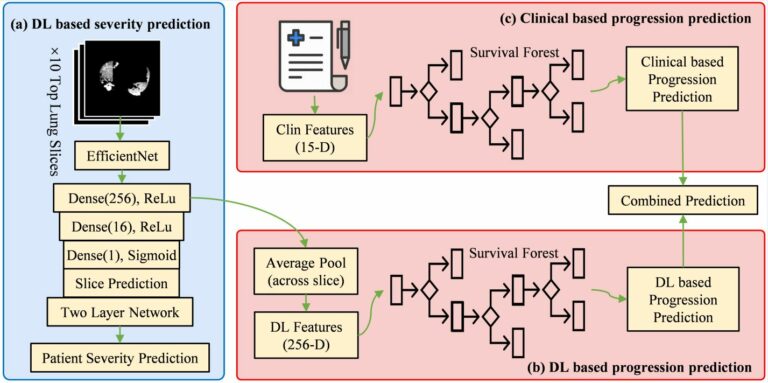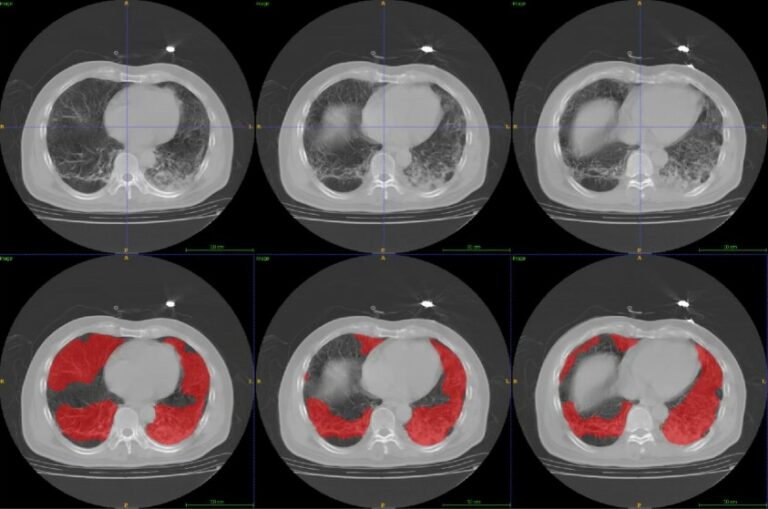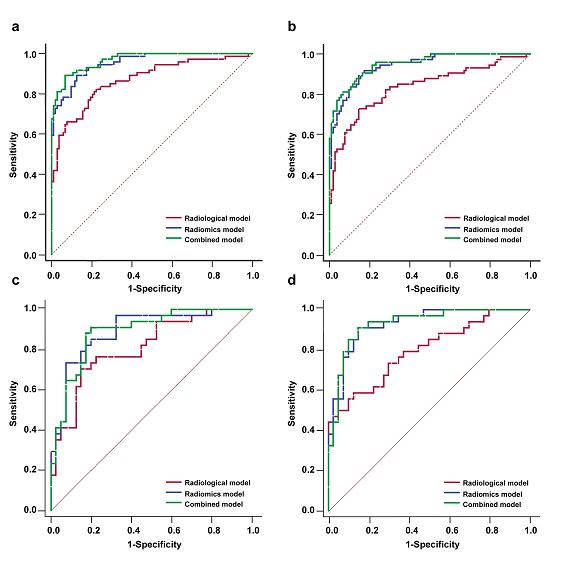
Artificial intelligence for prediction of COVID-19 progression using CT imaging and clinical data
Although challenging to predict, early recognition of COVID-19 severity can help guide patient management. The authors of this study aimed to develop an artificial intelligence system that was capable of predicting future deterioration to critical illness in COVID-19 patients. The AI system was developed to integrate chest CT and clinical data for risk prediction of said future deterioration to critical











